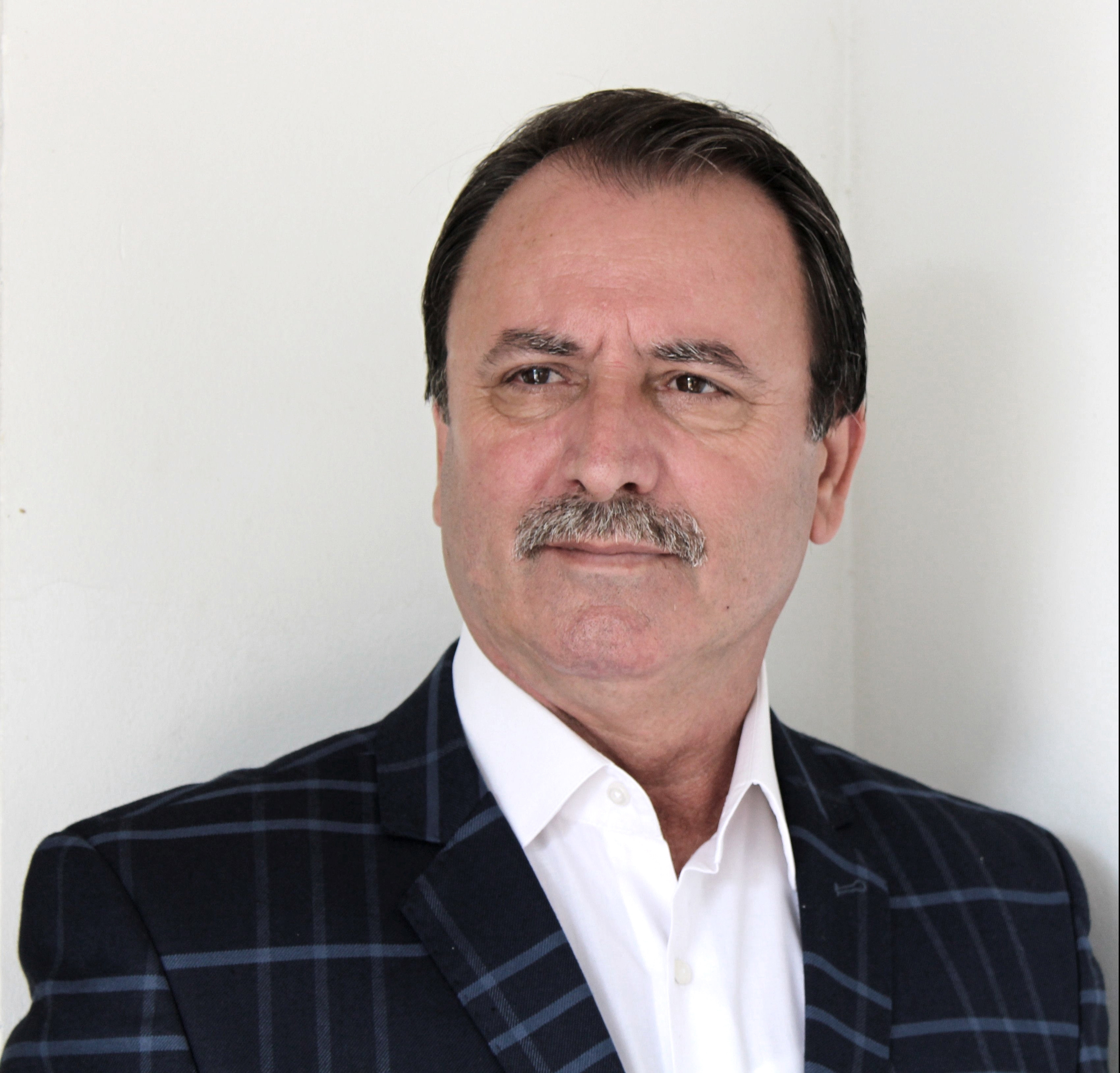

După XXV de ani de „PEŞTIŞORUL DE AUR”.Mesajul maestrului COMAN
ActualitateZiarul Cultural 8 august 2017 D.C.

 DANSUL. Este atât de răspândit şi frecvent, face atât de mult parte din viaţa oamenilor, încât ei nu mai simt nevoia să vorbească despre el, aşa cum nu simt nevoia să vorbească despre pâine! A povesti despre dans este aproape acelaşi lucru cu a dansa despre poveste! Căci, la începuturile şi începuturile lui, poate chiar înaintea apariţiei vorbirii articulate, dansul a fost un alt fel de vorbire general umană, întemeiată pe limbajul natural al corpului, exersat şi investit cu noi şi complicate atribuţii de comunicare. Dansând, omul comunica celorlalţi oameni sau divinităţii o poveste, o convingere, o stare, o dorinţă, sau o intenţie. Atât ceilalţi oameni, cât şi divinitatea, deveneau astfel informaţi şi luau act cu privire la cele comunicate. Figurile acestui limbaj în mişcare nu erau lăsate la voia unei stări de moment şi nici nu erau pur şi simplu inspirate de un ritm la întâmplare, ci erau inspirate de mişcările ritmate ale corpurilor cereşti sau ale fenomenelor naturale proprii universului care-l conţinea şi despre care omul era convins că ştie totul – cu excepţia viitorului! Lumea în întregul ei era percepută drept o creaţie a divinităţii, divinitate pe care el şi-o imagina cu precizie şi astfel o şi cunoştea; ceea ce urma, conform, desigur, voinţei aceleiaşi divinităţi imaginate şi asumate, era sub semnul misterului, necunoscută necesitând dialogul, comunicarea şi influenţarea voinţei divine, spre binele său sau spre binele general. Aşadar, prin dans omul mai exprima întrebări şi solicitări adresate divinităţii.
DANSUL. Este atât de răspândit şi frecvent, face atât de mult parte din viaţa oamenilor, încât ei nu mai simt nevoia să vorbească despre el, aşa cum nu simt nevoia să vorbească despre pâine! A povesti despre dans este aproape acelaşi lucru cu a dansa despre poveste! Căci, la începuturile şi începuturile lui, poate chiar înaintea apariţiei vorbirii articulate, dansul a fost un alt fel de vorbire general umană, întemeiată pe limbajul natural al corpului, exersat şi investit cu noi şi complicate atribuţii de comunicare. Dansând, omul comunica celorlalţi oameni sau divinităţii o poveste, o convingere, o stare, o dorinţă, sau o intenţie. Atât ceilalţi oameni, cât şi divinitatea, deveneau astfel informaţi şi luau act cu privire la cele comunicate. Figurile acestui limbaj în mişcare nu erau lăsate la voia unei stări de moment şi nici nu erau pur şi simplu inspirate de un ritm la întâmplare, ci erau inspirate de mişcările ritmate ale corpurilor cereşti sau ale fenomenelor naturale proprii universului care-l conţinea şi despre care omul era convins că ştie totul – cu excepţia viitorului! Lumea în întregul ei era percepută drept o creaţie a divinităţii, divinitate pe care el şi-o imagina cu precizie şi astfel o şi cunoştea; ceea ce urma, conform, desigur, voinţei aceleiaşi divinităţi imaginate şi asumate, era sub semnul misterului, necunoscută necesitând dialogul, comunicarea şi influenţarea voinţei divine, spre binele său sau spre binele general. Aşadar, prin dans omul mai exprima întrebări şi solicitări adresate divinităţii.
O colindă românească de june, de tânăr aflat la vârsta căsătoriei şi aflat în căutarea propriului destin, ne prezintă succint, dar cu claritate şi coerenţă, această idee a dansului inspirat – şi în oglindă – de corpurile cereşti:
La roşu la răsărit,/ Mândru joacă-on domn voinic/ da nu joacă cum să joace,/ Cătă soare să întoarce,/ Cătă soare, cum răsare,/ Cătă lună, când lumină,/ Cătă stele, când ies ele. Sau: Colo josu, mai din josu,/ În grădina soarelui,/ Joac-un june calul bun;/ da nu-l joacă cum să-l joace,/ Că-l întoarce curcubeu,/ În chipul lui Dumnezeu./ Nime-n lume nu-l vedea….
Şi toate dansurile au început la fel, născute şi legate de idei complicate reprezentând cultura umanităţii, la un moment dat şi într-un anume loc, astfel încât, înainte de a fi mişcare, dansul este în primul rând cultură! Aici, la Tulcea, la punctul de ramificare a gurilor Dunării, s-a dansat, desigur, de mult timp, caci dovezile de locuire a civilizaţiilor preistorice şi istorice se aşază cuminţi, la rând, într-o înşiruire practic neîntreruptă. Alături de Nil, Tigru şi Eufrat, Dunărea formează grupul celor patru fluvii care, potrivit legendei, scăldau Edenul terestru. Pe cursul lui, în amonte şi în aval, vechile civilizaţii dispărute şi-au purtat culturile proprii prin inima Europei, dansând; înaintea deschiderii deltei sale, seminţiile Antichităţii l-au traversat de la sud la nord şi de la nord la sud, transportându-şi particularităţile culturale. Aici, în Dobrogea, provincie căreia Tulcea îi este bătrâna capitală, s-au şi aşezat multe, de-a lungul secolelor, oprindu-se din tumultul unei zbuciumate istorii şi găsindu-şi aici a doua casă, a doua patrie. La aniversarea a 25 de ani de existenţă a unei asociaţii etnice din Dobrogea, preşedintele acesteia şi-a încheiat discursul festiv cu următoarele cuvinte: „Mulţumim strămoşilor noştri că, în lungile lor peregrinări prin lume, au ales să se stabilească aici!”
Loc de afluire şi de întâlnire a atâtor civilizaţii şi culturi, loc care a văzut multe, plasat
la capătul fluviului care străbate Europa, transportându-i amprenta culturală şi civilizaţională spre deschiderea lumii, Tulcea este, poate, locul cel mai potrivit pentru organizarea unui festival internaţional de folclor al copiilor. Internaţional, pentru că are ce arăta lumii şi este, în acelaşi timp, dornică sa primească lumea aici; de folclor, pentru că nimic mai evident ca folclorul şi tradiţia nu descrie specificităţile culturale, spre cea mai profundă cunoaştere; în sfârşit, al copiilor, pentru că ei trebuie să cunoască lumea care va fi a lor, să şi-o apropie şi să şi-o facă prietenă!
La toate acestea m-am gândit atunci când am iniţiat acest festival, la începutul anilor ’90, când încercam să pun pe picioare ceea ce a devenit astăzi Festivalul-Concurs Internaţional de Folclor pentru Copii şi Tineret „Peştişorul de Aur”!
În anul 1992, în urma participării la un festival dintr-un alt oraş, am avut o experienţă nu prea plăcută şi am decis că locul în care trăiesc, Tulcea, adică, mă obligă să fac eu un festival mai bun. Cel mai mult mi-a luat acţiunea de convingere a autorităţilor de la nivelul Ministerului Educaţiei şi Cercetării că un astfel de demers are rost! Am reuşit să conving şi am reuşit să obţin fondurile necesare realizării primei ediţii, atât de la autorităţile locale şi centrale, cât şi de la mulţi şi dedicaţi contribuitori. Aceasta, chiar dacă, din cauza piedicilor, perioada de desfăşurare a acestei prime ediţii a festivalului a fost mereu amânată, ajungând în final la jumătatea lunii septembrie! Greutăţile nu au lipsit, dar astăzi Festivalul-Concurs Internaţional de Folclor pentru Copii şi Tineret „Peştişorul de Aur” – cel mai important eveniment de acest gen de pe agenda culturală a României şi unul dintre cele mai importante, prin tradiţie, amploare şi prestigiu din lume – sărbătoreşte 25 de ani de existenţă neîntreruptă! De-a lungul timpului au participat la acest festival peste 35 000 de copii din aproape toată lumea, de pe toate continentele, cu excepţia continentului australian! De la şapte ţări participante la prima ediţie, s-a ajuns la ediţia de astăzi cu 13 ţări participante! Iată numele ţărilor care au participat la festivalul tulcean în toată această perioadă: Sierra Leone, Algeria, Armenia, Belarus, Bosnia şi Herţegovina, Bulgaria, Cehia, China Cipru, Columbia, Coreea de Sud, Croaţia, Egip, Etsonia, Georgia, Grecia, Israel, Italia, Kosovo, Letonia, Lituania, Macedonia, Mexic, Republica Moldova, Muntenegru, Olanda, Polonia, Rusia, Senegal, Serbia, Slovacia, Spania, Sri Lanka, Taiwan, Turcia, Ucraina, Ungaria, Venezuela, Vietnam şi România! Din România toate zonele tradiţionale, din aproape toate judeţele şi-au trimis reprezentanţii pe scena tulceană!
Întotdeauna, devenind aceasta o regulă, jurizarea a fost asigurată de specialişti de o înaltă competenţă şi probitate profesionale.
Primii participanţi la acest festival sunt astăzi părinţi şi unii dintre ei au bucuria de a-şi vedea copii evoluând pe scena „Peştişorului de Aur”! O fac cu mândrie şi încredere, căci ei ştiu cel mai bine ce înseamnă festivalul tulcean: mişcare, cultură, prietenie! Veniţi din toate colţurile lumii, copiii sunt puşi în faţa necesităţii de a se înţelege cu alţi copii, vorbind o altă limbă. Ei descoperă astfel diversitatea nu ca pe o realitate îngrijorătoare, ci ca pe un grandios spectacol al lumii. Căci, credincios tradiţionalei sale meniri, un peştişor de aur îi va aştepta întotdeauna la Tulcea, aşa cum o face de 25 de ani, spre a le îndeplini trei dorinţe: să crească, să înţeleagă, să devină! Vor deveni, astfel, locuitori senini ai satului universal, prin care se vor mişca precum peştele în apă!
Iată, deci, un nou prilej de a mulţumi tuturor celor care, de-a lungul celor 25 de ediţii, au sprijinit acest festival, sprijin fără de care el nu ar fi căpătat amploarea şi strălucirea pe care astăzi le are! Ne gândim, în primul rând, la instituţiile administraţiei publice locale, Consiliul Judeţean Tulcea şi Primăria Municipiului Tulcea, care ne-au stat alături cu solicitudine şi eficienţă, la toate ediţiile; de asemenea, Inspectoratul Şcolar Judeţean Tulcea, cel care, în permanenţă, „a pus umărul”! Ne gândim, de asemenea, la hotelierii şi administratorii de cămine şi tabere şcolare; la cei din restaurante şi cantine; la cei care prin mijloacele de transport în comun proprii au făcut posibile deplasările în judeţ şi în Delta Dunării; la cei care, prin societăţile comerciale proprii au asigurat bunuri şi servicii necesare unor sejururi mai atrăgătoare; în sfârşit, la toţi cei care ne-au urmărit la paradele portului popular şi la spectacole, răsplătind cu generoasele lor aplauze copiii şi încurajându-i! Tuturor acestora le adresăm mulţumirile noastre, amplificate de cei 25 de ani de colaborare parcurşi împreună!
La mulţi ani, „Peştişorul de Aur”!
La mulţi ani, copii!
*
After XXV years
„GOLDEN FISH”
THE DANCE. It is so widespread and frequent, it makes so much of the people’s lives that they no longer feel the need to talk about it, as they do not feel the need to talk about the bread! Telling about dancing is almost the same thing as dancing about the story! For, at the beginning and the beginning of his speech, perhaps even before the articulation of speech, dance was another kind of general human speech based on the natural language of the body, exerted and invested with new and complicated communication powers. Dancing, the man communicates to other people or divinity a story, a conviction, a state, a desire, or an intention. Both the other people and the divinity became so informed and took note of what was communicated. The figures of this moving language were not left to a state of moment, nor were they simply inspired by a rhythm at random, but were inspired by the rhythmic movements of the celestial bodies or the natural phenomena of the universe that contained it and about which the man was convinced that he knew everything – except for the future! The world in its entirety was perceived as a creation of divinity, a deity he imagined precisely, and so knew it,what followed, conformable, of course, was according to the will of the same divineness imagined and assumed, was under the sign of the mystery, unknown, requiring the dialogue, communication and influence of the divine will for its own sake or for the general good.
So, through dancing, the man also expresses questions and requests to the divinity.
A Romanian carol by young, a young man at the age of marriage and in search of one’s own
destiny, gives us succinctly, but with clarity and consistency, this idea of the inspired dance – and in the mirror – of the heavenly bodies:
In the red to the east, / proudly plays a strong gentleman / does not play how to play, / The sun goes back, / The sun, how it rises, / The moon, when light, / The stars, when they go out. Or: go down, from the bottom, / In the garden of the sun, / Play a young, horse good, / yes do not play it how to play it, / / It returns rainbow, / In the image of God. / Nobody from the world does not see it…
And all the dances started the same way, born and related to complicated ideas representing the culture of humanity, at some point and in a certain place, so that, before being moved, dance is primarily culture! Here, in Tulcea, at the point of branching the mouths of the Danube, it has, of course, been danced for a long time, for the evidence of the inhabitation of prehistoric and historical civilizations is settled in good measure in a virtually uninterrupted manner. Together with the Nile, the Tiger and the Euphrates, the Danube forms the group of four rivers, which, according to legend, shed the earth’s Eden. On his course, upstream and downstream, the old civilizations that disappeared have carried their own cultures through the heart of Europe, dancing, prior to the opening of its delta, the tribes of antiquity crossed it from south to north and north to south, transporting its cultural particularities. Here, in Dobrogea, a province where Tulcea is the old capital, they have settled many, over the centuries, stopping from the turmoil of a tumultuous history and finding their second home, the second homeland. On the 25th anniversary of the existence of an ethnic association in Dobrogea, her president ended his festive speech with the following words: “We thank our ancestors that, in their long journeys through the world, they have chosen to settle here!”
The place where many civilizations and cultures, a place that has seen many, placed at the end of the river that crosses Europe, transporting its cultural and civilization footprint to the opening of the world, Tulcea is perhaps the most suitable place for organizing a International Folklore Festival-Competition „Golden Fish”! she has what she looks to the world and is, at the same time, eager to receive the world here, of folklore, because nothing more obvious as folklore and tradition does not describe cultural specifics, to the deepest knowledge, finally, for children and youth, because they need to know the world that will be theirs, to bring them closer and to make it a friend!
To all this, the initiator of this festival, Professor Ştefan Coman, thought at the beginning of the ‘90s, when he tried to put on the stage what became the International Folklore Festival-Competition „Golden Fish”!
In 1992, after attending a festival in another city, he had a rather unpleasant experience and decided that the place where he lives, Tulcea, that is, obliges him to make him a better festival. The most important thing was to convince the authorities at the level of the Ministry of Education and Research that such an approach is worthwhile!
He managed to convince and succeeded in obtaining the funds needed to carry out the
first edition, both from local and central authorities, as well as from many and dedicated contributors. This, even though, due to the hindrance, the period of this first edition of the festival has always been postponed, reaching the end of September! The hardships were not lacking, but today the International Folklore Festival-Competition „Golden Fish”! – the most important event of its kind on the cultural agenda of Romania and one of the most important, by tradition, world-wide and prestigious from world – celebrates 25 Years of uninterrupted existence!
Over the course of time, over 35,000 children have taken part in this festival from almost everybody on all continents except the Australian continent! From the seven countries participating in the first edition, today’s edition has been reached with 15 participating
countries! Here are the names of the countries that participated in the festival from Tulcea throughout this period: West Africa, Algeria, Armenia, Bosnia and Herzegovina, Bulgaria, Cyprus, Colombia, South Korea, Croatia, Georgia, Republic of Macedonia, Mexico, Republic of Moldavia, Montenegro, the Netherlands, Poland, Russia, Senegal, Serbia, Slovakia, Spain, Sri Lanka, Taiwan, Turkey, Ukraine, Hungary, Venezuela, Vietnam and Romania! From Romania, all the traditional areas, from almost all the counties, sent their representatives to the Tulcea stage!
Always, by becoming a rule, judging has been provided by highly competent and professional probation specialists.
The first participants in this festival are parents today, and some of them have the joy of seeing their children evolving on the stage of „Golden Fish”! I do it with pride and trust, they know the best what the Tulcea festival means: movement, culture, friendship! Coming from all corners of the world, children’s are faced with the need to understand other children’s, speaking another language. They discover diversity not as a worrying reality, but as a grand show of the world. For, faithful to his traditional mentions, a gold fish will always wait for him in Tulcea, as he has been doing for 25 years, to fulfill three wishes: to grow, to understand, to become! So they will become serene inhabitants of the universal village, through which they will move like the fish in the water!
Here is a new opportunity to thank all those who, along those the 25 editions, have supported this festival, without which he would not have grasped the magnitude and brightness that he has today! First of all, we think about the local public administration institutions, the Tulcea County Council and the Tulcea City Hall, who have been together with their solicitude and
efficiency in all editions. Also Tulcea County School Inspectorate, the one who has „always put on the shoulder”! We are thinking of hoteliers and hostel managers and school camps; To those in restaurants and canteens; To those who by their own means of transport made possible trips to the county and to the Danube Delta; To those who, through their own companies, have provided the goods and services needed for more attractive stays; Finally, to all those who have watched us at the folk harbor parades and shows, rewarding with generous clapping their children and encouraging them! All of them we address our thanks, amplified by the 25 years of collaboration that we have gone together!
Happy Birthday, Golden Fish!
Happy Birthday Children’s!
*
Pe toţi vă aşteptăm să ne fiţi alături în zilele festivalului, în perioada 7-12 august, când surprizele, mai mult de trei, nu vor lipsi!
We all expect you to join us in the festival days, during 7-12 August, when surprises, more than three, will not be missed!
Director,
Prof. Ştefan Coman




